#my wee gifs
Text



this speaks to me on a molecular level
#spock#leonard nimoy#star trek tos#the deadly years#cinemaocd and I are rewatching original trek to get us through the winter#because nothing cheers like 1960s pop colours#and space husbands#ok so this ep they did everyone dirty with the extreme aging apart from spock who looks fucking fantastic#also len does the BEST old person acting of the bunch#never mind the subtleties of having to make jim step down#it's a classic ep#my wee gifs
5K notes
·
View notes
Text



La Vie En Rose
#La Vie En Rose#OFMD Spoilers#Our Flag Means Death#ofmdedit#ourflagmeansdeathedit#ofmdaily#dailypiratemedia#Our Flag Means Gay#OFMD#Izzy Hands#Fang#Edward Teach#Stede Bonnet#My Gif#Wee John Feeney#Calypso#Drag#Jim Jiminez#Archie#Roach#LGBT#lgbtedit#Con O'Neill#David Fane#Taika Waititi#Rhys Darby#Kristian Nairn#Vico Ortiz#Madeleine Sami#Samba Schutte
4K notes
·
View notes
Text
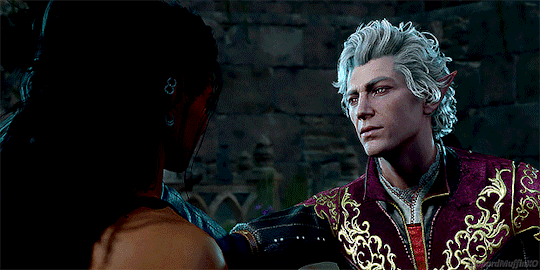

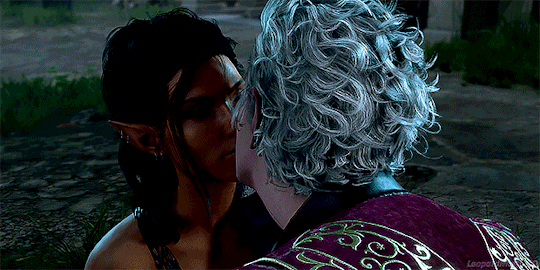
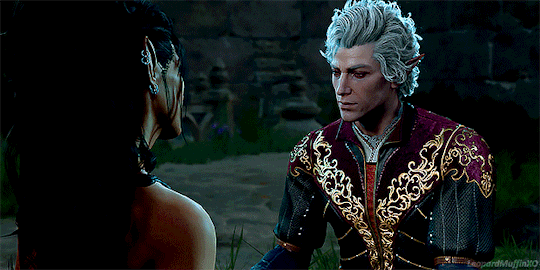
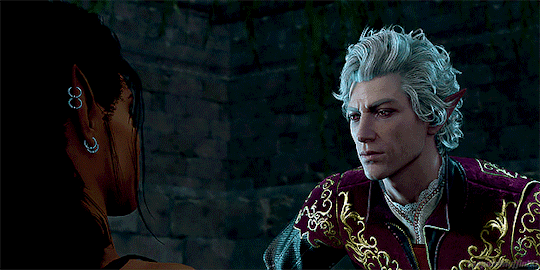
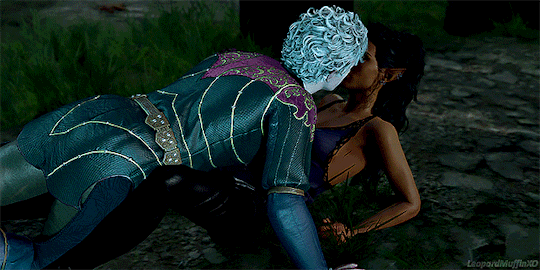
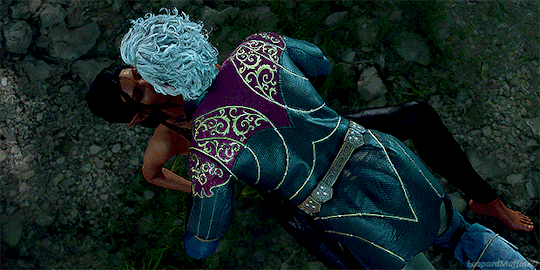

love fucks me in ways even lust would be envious of
#bg3#baldur's gate 3#bg3 spoilers#baldur's gate 3 spoilers#astarion ancunin#astarion#my oc: raven ianthe#otp: a perfect blend of aphrodisiacs and arsenic#astarion x my oc: raven#astarion romance#astarion x tav#astarion x mc#my bg3 edits#woo wee the positions you miss in the vanilla camera angles#someone spray me with water#userarklay#usermorvaris#userwolfkissed#userrivensbane#userlumad#userterendelev#userdekarios#miyku#baldurians#katsigian#useremahriel
3K notes
·
View notes
Text
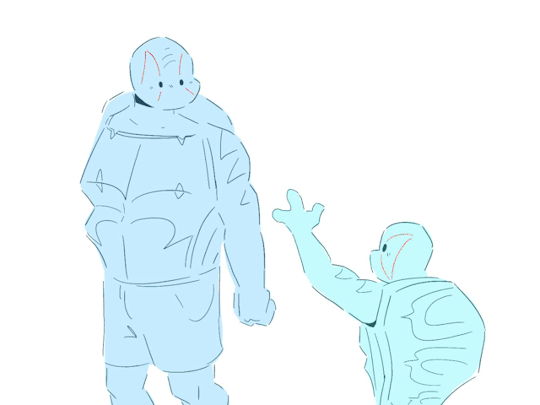
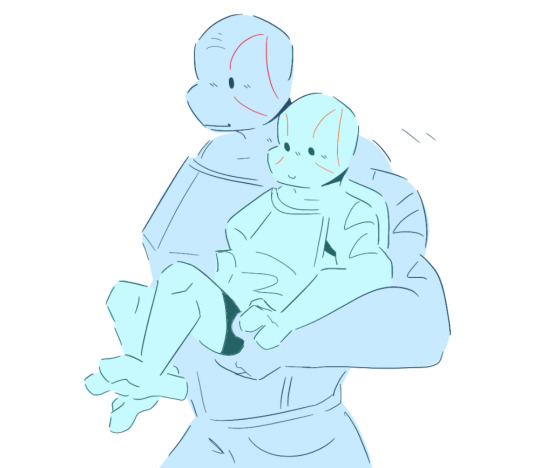
uppies
he just wants to be carried.....
#2 arms left#rottmnt#rise of the tmnt#rise leo#leonardo hamato#future leo#im home from my wee vacation but im very tired#tired as in this somehow took me 3 hours when it should have taken 1 wheeze#not in much an art mood ig? eh the art mood will return eventually
2K notes
·
View notes
Text
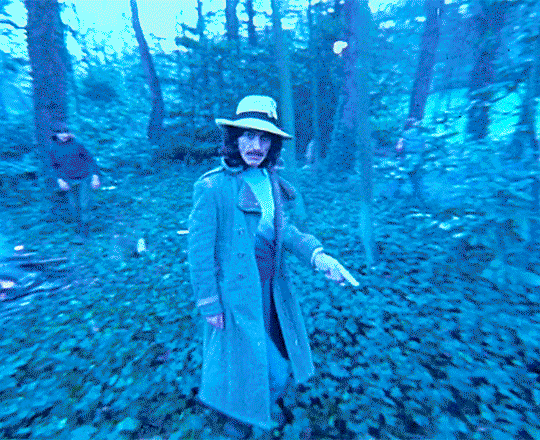

GEORGE HARRISON and social interaction difficulties - part 2
#he's like a wee little baby fawn who's still trying to figure out how to walk properly#peak of my gif making i have to say#george harrison#the beatles#the beatles get back#beatlesedit#thebeatlesedit#1960s#1969#1970s#1974
949 notes
·
View notes
Text
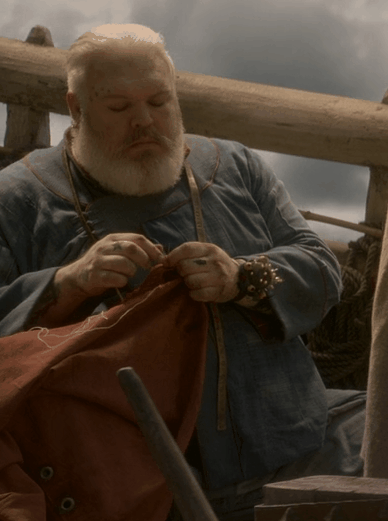
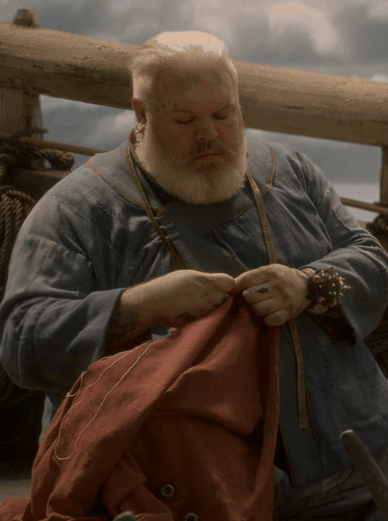
Wee John on "Tailor's Duty" Apreciation Post
#yeah...#the ofmd brainrot has compeled me to start making gifs...#we will see how long I last#either way I wanted to give Wee John during his duty his own spotlight!#he was so happy to be put on tailor's duty#ofmd#ofmd spoilers#ofmd s2#ofmd season 2#our flag means death#ofmd s2 spoilers#wee john ofmd#my stuff
849 notes
·
View notes
Text
I was thinking about the idea that homophobia doesn't exist in the world of Our Flag Means Death. I think it's clear that this is not the case, but it is a more complicated issue than what we think of when we discuss straightforward homophobia, and is closely aligned with how the different worlds represented in the show perceive sex, love, and desire.
(Before I get going, I want to be clear that I'm discussing the world of the show itself, not the world of the historical Caribbean in the 18th Century. Our Flag Means Death primarily uses history as a useful lens through which to filter our own time period and the things it wants to discuss, and so only uses history when it serves the show's purposes. These are all just my thoughts - I'm always happy to discuss them!)
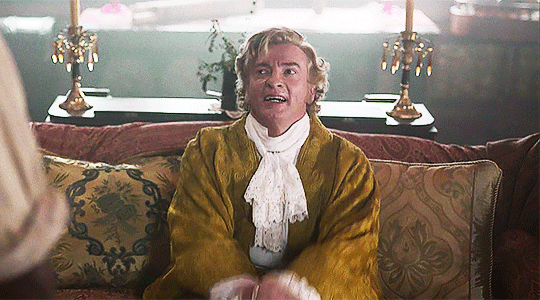
There are two major worlds at play in the show: the English gentry that Stede comes from, and the pirate world. In neither world is homosexuality explicitly treated as illicit or unacceptable, though it is never mentioned or shown in the English world. Most of the homophobia expressed by characters lies in the perceptions of the "right" and "wrong" ways of performing gender and sexual roles. I talked about this a bit here in regards to Izzy's homophobia.
In both the English and the pirate worlds, Stede's gender presentation is openly questioned. Stede is a fop - not necessarily a sexual marker one way or the other - but he's also, in the words of the show, soft. His father labels him a "weak-hearted, soft-handed, lily-livered little rich boy" who has never done a "man's work," blanches at the sight of blood, and is only inheriting his power from better, more masculine men.
Within the world of the show, Stede occupies a role typically reserved for female characters, in which he's sold in marriage to build his family's wealth. His romantic desire to marry for love is knocked down; it doesn't matter if he loves Mary or she loves him, or if there is even any desire on either side, because the whole point is to unite their wealth and produce heirs to carry on that wealth.

In Stede's memories, the shift from getting married to having children is instantaneous. Sex is implied, but it barely exists for him - it was simply something that he had to do to fulfill his part. Again, this casts Stede in a role often reserved for female characters in fiction. The function of sex, in the English world, is procreation. Desire hardly enters into it, and love certainly doesn't. So it is likely that Stede's only sexual experiences are ones without desire and without love. They are simply to fulfill a function.
Pirate society is significantly more open when it comes to expression of sexuality, but it is still steeped in sexual roles and requirements. Stede's outward queerness marks him out, but it's his inward queerness and how that integrates his emotional core that makes him unacceptable within the masculine hierarchy represented by Izzy and Calico Jack.
I've gone into Izzy's toxic masculinity and hatred of Stede's gender presentation elsewhere, but to reiterate briefly - Izzy's biggest problem with Stede is that Stede does not occupy the correct gender role within the masculine hierarchy, nor does he occupy a properly defined sexual role. He is, in Izzy's view, supposed to be submissive to a dominant male, and he's anything but. He breaks the rules of piracy and he breaks the rules of masculinity, without seeming to be aware that there are rules to break (at least in the pirate world). Stede is "wrong" in Izzy's understanding of masculinity and homosexuality, just as he is wrong in the Badmintons'/his father's understanding.
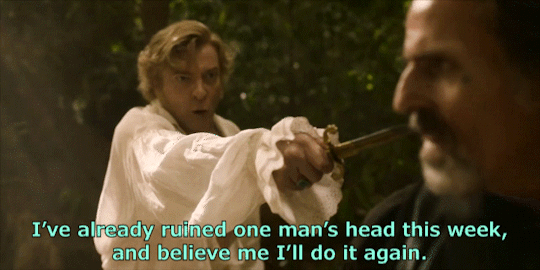
It is Stede's breaking of those rules that attract Ed to him in the first place. He doesn't act like a pirate should. He's strange. He's off-script. He's...queer. That queerness draws Ed in - far from being repelled by it, as Izzy thinks he should be, he's fascinated by it. Stede's softness and gentleness are things that Blackbeard should either reject or attempt to dominate, and he does neither.
What comes out in Stede and Ed's interactions is that Ed himself doesn't just desire softness, but is soft himself. Beneath the masculinity he puts on, he wants to be touched with kindness, he wants to be embraced. One of Stede's first questions is if he "fancies a fine fabric." When Ed says he does, Stede doesn't laugh at him or view this as un-masculine. He shows Ed as many fine fabrics as he can, excited to finally have another man with whom to exchange this love.
Ed also wants to be submissive without being hurt. He gets Stede to stab him in a performance of sex, but the act implies even more than that - that sex and pain are closely related in the pirate world, tied to sexual roles (men who penetrated and men who are penetrated). But Stede, once more, is a gentle man who penetrates. He doesn't see the stabbing as a sexual act, nor does he get a sexual thrill from causing Ed pain. Ed submits to a man who cares that he's being hurt, and it is this softness that Ed wants and is, as yet, unable to ask for.
(It is notable that, when Ed recalls the stabbing in "Fun and Games," his main memory is of Stede's look of concern.)
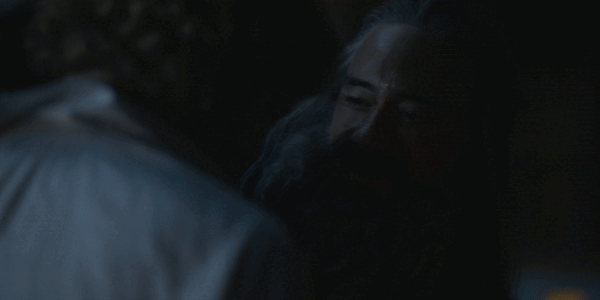
The role of sex, love, and desire in the pirate world is made clearest with Calico Jack, far and away the most explicit representation of a pirate's toxic masculinity, who also highlights the reading of sex as about power and pain, not love. Calico Jack and Stede's conversation is the first time that sexual relationships between men is actually raised, in explicit and vulgar terms as Jack asks Stede if he and Ed are "buggering each other" and tells Stede "Blackie and I have had our dalliances."
Jack views Stede's response as being ashamed, but we see clearly that it's not shame but anger. Stede doesn't like who Ed is with Jack, and he doesn't like Jack's vulgarity, simplifying sex, and especially sex with Edward Teach, down to pure functions, not expressive of love or desire, just as they are in the English world. Jack's attitude that this is simply what men do to (not even with) other men when they are at sea, and he's proving his dominance by telling Stede that he's done it with Ed.
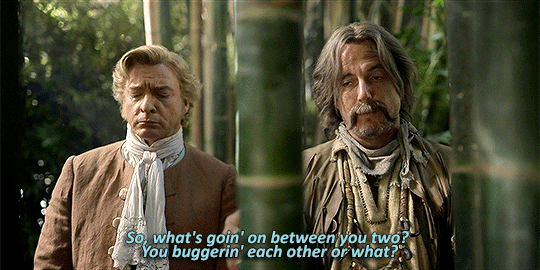
Stede is not ashamed at the assumption that he and Ed are having sex, but angry at the implication that sex between them would be "buggery" and "dalliance," not love (and, what's more, that Ed would be treated as a thing instead of a person by another man).
Stede's queerness is part of his emotional core - it is not a whim. It is not something he can discard or mask, regardless of how he dresses or behaves. It is not something that just "goes at sea," or that can be reduced to functions. It is integral to himself, and so he's been completely unable to conceal it from being perceived in either the English or the pirate world, though he has tried very hard to conceal it from himself.
Ed has also tried to conceal the emotional reality of his queerness via his performance as Blackbeard, turning it outward as violent games between men, without softer emotions. It is with Stede that his own emotional core is revealed, and the big mean pirate is shown to be a man who wants to be held and touched, to be submissive without being shamed or harmed.
They allow each other to be vulnerable, to move beyond their worlds' insistence on sex as being purely a function and to unite it with love and desire. Their romance develops out of friendship and a powerful emotional understanding that claims softness as strength.

Neither Stede nor Ed are acceptable in worlds dominated by toxic masculinity and controlled by rules of masculine hierarchy and power. But they are acceptable on the Revenge, filled with a crew of the "worst pirates in the world," all of whom openly, and increasingly, express fluid gender and sexual roles and identities that shift with relationships and feelings. Both are aligned with the queer liberation of the Revenge, itself shaped by Stede's ethos of kindness and breaking the "culture of violence" of piracy, but they have to break out of their worlds' underlying homophobia to find their way to each other.
#ofmd#ofmd season 1#stede bonnet#edward teach#ed teach#gif#ofmd meta#our flag means death#queer liberation#rhys darby#taika waititi#my wee thoughts#long post
603 notes
·
View notes
Text

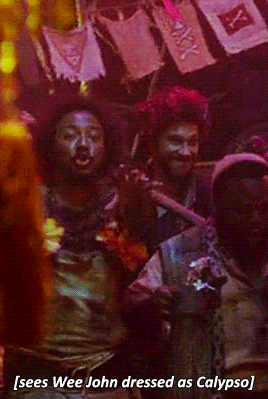
Frenchie going 😯 over Wee John— that's his room person, your honor!
#our flag means death#ofmd s2#room people#frenchie ofmd#wee john feeney#kristian nairn#joel fry#doing a frenchie watchthrough and seeing joel just give and serve face in the background is a treat#my gifs
472 notes
·
View notes
Text
Why Aziraphale is an unreliable narrator
Part 2: The Story of wee Morag

This is Part 2 of 3 total metas. Here are:
Part 1, in case you want to read about my analysis of the Story of Job first
and Part 3, in case you're impatient and want to jump ahead.
Fair warning though, for the sake of understanding some of the references, you're probably better off reading this chaptered meta chronologically. However, every part should work just as well as a standalone! I'll do my very best to make it so.
Alright, off or on you go beyond the cutty cut!
I'll start this second part off with a very brief summary of the main take aways and points from Part 1, which go as such:
Memory, as opposed to a third party's narration, is not a factual, objective retelling of a story or event. It's mingled and mangled with emotions, imaginations and exaggerations, projecting both the feelings and impressions you had back then as well as those you might have now in the present time back on whatever it is you are remembering. (Which is why we need to put everything that Aziraphale is remembering into the context of what he might have felt in the past, as well as what he's feeling right now.)
While this doesn't mean his (or anyone's) memories are lies, it does mean they're a very subjective and sometimes factually distorted representation of what actually happened, which, in our case, gives us a lot of subtext and a lot of not-there furniture to figure out and look at.
So, let's continue with S2E3 and the Story of wee Morag. We start our flashback with a scene of Aziraphale writing his diary entry on the 10th of November, 1827. Immediately, it's firmly established that this is once again not an outside-point-of-view narration, but rather what Aziraphale remembers and wrote down.
One thing that immediately stuck out to me here, is how helpful and kind Crowley is to Elspeth, pretty much from the very beginning when they meet her in the graveyard. Not only does he take on a Scottish accent so she won't perceive him as English (as she does with Aziraphale), but he also helps her drag the barrel that has the fresh body in it and, in the end, even pulls it all by himself while Elspeth simply follows behind them. Here's a rather poor-quality picture, for reference:
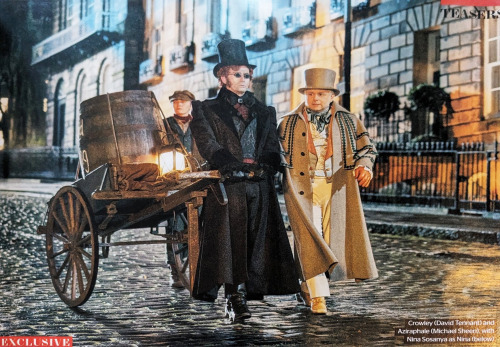
Now, we know that despite not showing it very often, Crowley has always been very fond of the humans and never really put himself on a pedestal simply because he's an immortal being himself. He likes humans, just like Aziraphale does. But, just like this story will tell us, Crowley knows that on top of liking humans, you can't just put them into boxes of good and evil and expect them to always do what is supposedly the "right" or "divinely good" thing to do. (Which is what differentiates him from Aziraphale in the way he understands and treats them, as we're shown in this minisode).
Him immediately and unspokenly helping Elspeth with dragging the barrel therefore might also be a first sign of a tiny projection from present day Aziraphale, as opposed to what Crowley might have actually done (probably just walked beside her, like Aziraphale) because he has the knowledge that Crowley really was so very kind to her in the end, wasn't he? And that he's kind to humans in general. ("Not kind! Off my head on Laudanum!" Sure, babe.)
Most of this minisode, in my opinion, is actually there to establish how Aziraphale's view of morality and good vs. evil used to be quite flawed and elitist –– and how Crowley has always been there to gently nudge him towards questioning his black and white view of heavenly right and hellishly wrong. That's why I think there's not as many hints in this minisode about Aziraphale's memories not being an accurate portrayal of what happened, as there are in the Story of Job or the magic show in 1941. (And, fear not, the latter will definitely be the most hint-heavy one). Alas, there's still a few bits and bobs in the Story of wee Morag that stuck out to me, that make a brief yet good case of the whole unreliable narration thing.
First of all: The way Aziraphale describes all of it in his diary is so different from the way we see him actually remembering it. It's almost like he tried to write this entry (and possibly all of his diary) as a bit of a thrilling short story, with himself as the main character. Which makes sense, given the fact that he adores books and would certainly be keen on dabbling in the art of capital-w Writing himself. It's yet again hinting at the fact that sometimes people (and angels) try to polish and bedazzle stories (and memories) to make them seem more exciting and adventurous, often to distract from the not-so-fun parts of it.
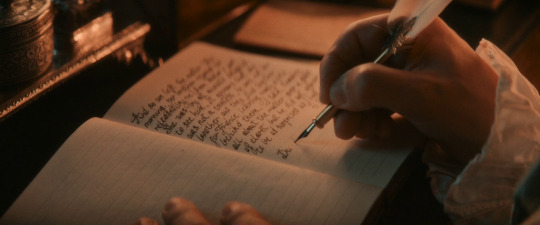
Like when Aziraphale's diary narrates:
"It was with heavy heart we arrived at Elspeth's destination. I was determined to thwart her monstrous plan!"
... and yet we see Crowley and Elspeth casually walking down the alleyway, very obviously not heavy-hearted in the slightest, while Aziraphale nervously scurries on behind them, very obviously not determined to thwart. (Timestamp-wise, it's around 17:38 in S2E3, in case you want to see for yourself.)
We get another cinematographic/auditory hint at the fact that Aziraphale's memory is heavily influenced by what he's feeling that very moment, when Dr. Mister Dalrymple –– FRCSE, thank you very much –– shows him the tumor he removed from the seven year old boy. You can see the shock and horror on Aziraphale's face once he learns of this child's cruel fate. We then proceed to hear Mr. Dalrymple's voice grow sort of echo-y and far away as the sad music swells up and drowns out his voice almost completely. It's awfully similar to what it feels like when really horrible news are broken to you and you dissociate and drift into a state of shock. Here's the clip of it, so you may listen for yourself:
It's clear that this is a very subjective portrayal of what Aziraphale is going through during this part of the memory. He's deeply horrified and saddened about the little boy having passed away so early in life – and we hear and feel this shock with him. Through him, because this is his memory. Whatever it is he's feeling and thinking, we're feeling and thinking it too because we're seeing it through his lense.
Another (less sad) hint at a possible exaggeration is the abnormally deep hole Crowley makes the two graveyard watch keepers fall into. I'm pretty sure he's very much in charge of his miracles, making this random slip-up seem a little silly – which is why I'm also pretty sure the "Might have slightly overdone it on that hole" is a wee bit of a meta hint at this just being another one of Aziraphale's dramatic bedazzlements of this story. For the *flings feather boa around neck* drama!
You know what else might be exaggerated? Hm, I dunno, maybe Crowley growing into the size of a tree for no apparent reason. Sure, yes, he's pretty high on Laudanum which is making him a bit loopy. But apart from that, it does seem an awfully big cinematographic euphemism for him being the metaphorical (and, once again, for the drama of it) literal bigger person in this scenario. He's the one who ends up saving Elspeth and who manages to secure a safe life without poverty and grave robbing for her. While Aziraphale was so tangled up in his own moral journey and main character-ism, missing that wee Morag was seconds away from death already, Crowley is the one who actually ends up growing stepping up for the human in need and saving them for good (pun intended).
In a way, it might just be Aziraphale's view of/feelings for Crowley in this very moment. Watching the demon outgrow what, according to Aziraphale's heavenly logic, is supposed to be a foul fiend, bestowing evil upon humanity – and growing into someone who does the exact opposite and saves Elspeth instead. Another larger-than-life character development, in Aziraphale's eyes. Literally.
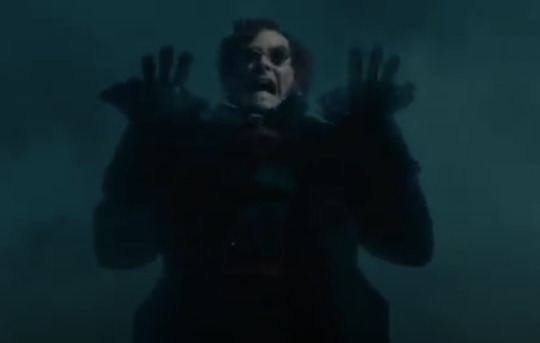
Let's switch back to the topic of the diary entry one last time, so I can make my final point of the this minisode's unreliable and a smidge over-dramatic narration of Dr. McFell. If you pay close attention, Aziraphale starts the entry we're all getting to experience with: "Last month, Crowley and I both happened to be in Edinburgh." Which means it didn't actually happen on the 10th of November, but rather at some point in October, 1827. Once we see Crowley get hydro-pumped back to Hell after rescuing Elspeth, the minisode ends with, presumably, the last sentence of Aziraphale's diary entry: "And that was the last I would see of Crowley for quite some time."
Take my hand and let's look at where the furniture isn't: This very clearly means that Crowley couldn't have been gone for more than a month, at best. Read again: "It happened last month and that was the last I would see of him for quite some time." This, albeit indirectly, clearly implies that when Aziraphale had sat down to write the diary entry, he had already run into Crowley again. Otherwise his phrasing would have probably been more along the lines of "... and I haven't seen Crowley since" or "... and Crowley has yet to return from wherever it is Hell's currently keeping him".
What's the point I'm trying to make? Good question. I guess my main point of storyteller Aziraphale being a bit over-dramatic in his narration is simply backed up by this, since A Single Month would barely pass as "quite some time" for an immortal being like him. And yet that's how he puts it, in his little Confidential Journals of A.Z. Fell, Vol. 603.
And another point that has absolutely nothing to do with the topic of this meta (but I'm still gonna make it 'cause this is my memory post): The meeting at St. Jame's Park in 1862 that so many, post-S2, took to be their first run-in after the Story of wee Morag, actually wasn't that at all. They saw each other at least once only a month later, as Aziraphale's diary lets us know. Which explains why he wasn't very surprised or concerned when he met Crowley in London, 1862. If there really had been 35 years in between those two events, the first one ending with Crowley being sucked back Downstairs to receive more than three decades worth of hellish punishment, wouldn't Aziraphale have been at least a tiny bit worried or more interested than:
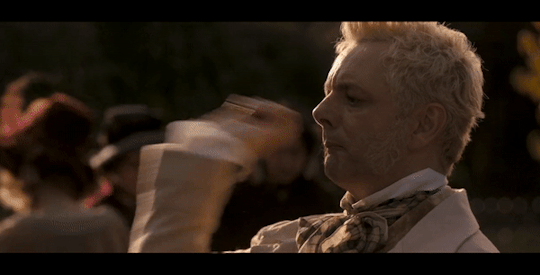
Just saying.
Alright, let's string this inflated hot air balloon of a post back together so we can outline some invisible furniture. This time with only two humble points:
Crowley through Aziraphale's lense
Backed up by how we are introduced to Bildad the Shuhite in the Job minisode (suave, cheeky, smart, passionate in shoemaking and obstetrics), it's growing quite clear that Aziraphale's memories and impressions of Crowley are very fond and impressed ones. He sees him as someone who's not only witty, funny and cool, but also as someone who has figured out way sooner and faster than him that nothing's ever black and white. Not God's plans and not the human's choices either.
Aziraphale as a bit of an exaggerating adventure author
With the direct parallel we get of inkslinger journalist!Aziraphale in the present day, it's quite apparent after this minisode that Aziraphale's memory is not only deeply influenced by his emotions, but that he also tends to have a bit of a dramatic touch to him. Although, you gotta give it to the guy: A month without seeing the love of your life, even if said life is eternal, can indeed seem like "quite some time".
Well, would you lookie here, we've reached the end of Part 2! What a journey it was. I hope you forgive me for the fact that I drifted off-course a few times. I just can't seem to reel in my silly little observations, even if they've got nothing to do with the point I'm trying to make. But hey, doesn't that just make me a little bit like Aziraphale's storytelling, in a way?
I'll let you be the judge of that.
See you in Part 3! And in case you haven't snuck a peak yet: here's Part 1 again.
Ta!
#good omens#good omens season 2#gos2#go2#good omens 2#good omens meta#ineffable husbands#aziraphale#crowley#good omens analysis#aziraphale is a storyteller#but not a very accurate one#story of wee morag#my own meta#aziraphale the Drama Queen#shakespeare who#unreliable but beloved story teller aziraphale
556 notes
·
View notes
Text
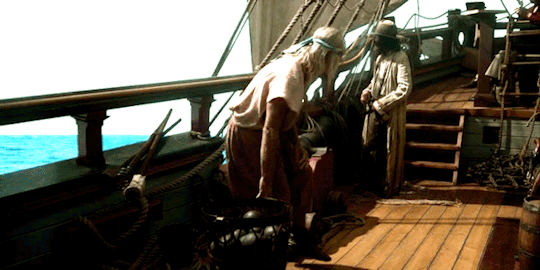

Jim at the start of Our Flag Means Death Season 1 and the end of Season 2
#Our Flag Means Death#ofmdedit#Our Flag Means Gay#OFMD#ourflagmeansdeathedit#Jim Jiminez#Jim#Vico Ortiz#My Gif#Lupete#Lucius Spriggs#Black Pete#Zheng Yi Sao#Oluwande Boodhari#Olujim#Wee John Feeney#The Swede#LGBT#lgbtedit#nonbinary#queer#Nat Faxon#Nathan Foad#Matthew Maher#Kristian Nairn#Samson Kayo#Ruibo Qian#puertoricanninja#The Revenge#Good For Them
2K notes
·
View notes
Text



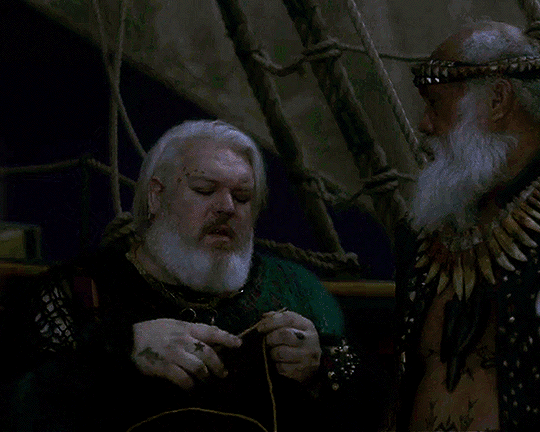
Wee John + Knitting
2.04 Fun and Games
Bonus:

#a textile queen#wee john feeney#ofmd#ofmd s2#ofmd spoilers#my edits#ofmdedit#ofmd gifs#ofmddaily#ofmdsource#userisaiah#useralison#alivedean#cowboycoven2
538 notes
·
View notes
Text



"So it’s true..."
#the sign#the sign bl#the sign the series#heng asavarid#babe tanatat#thesignedit#thai bl#thai drama#bl drama#bl series#my edits.#team slowmotion#yes i smushed them closer together so what 🤣#i don't ship them they just had to be in the same gif#because for a moment there chalothorn almost looked unsure and ashamed#because what?#is it the way he looks (weakened by his own hatred)#or is it the way tharn looks at him (because up until now tharn had adored his mor chalothorn)#poor wee snake prince had to a whole evil monologue to hype himself up again
207 notes
·
View notes
Text

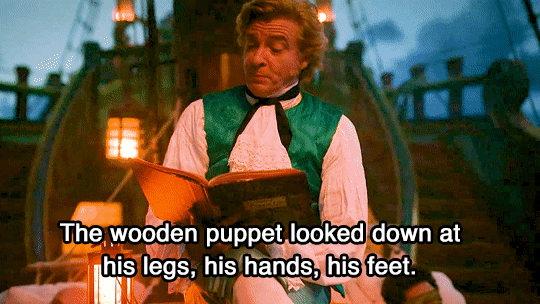
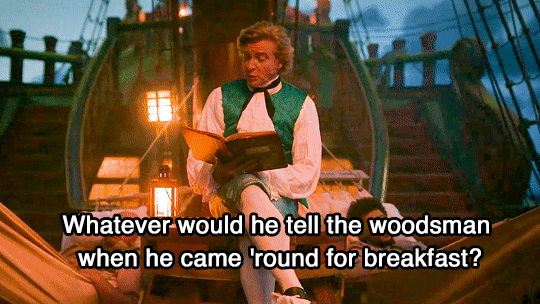
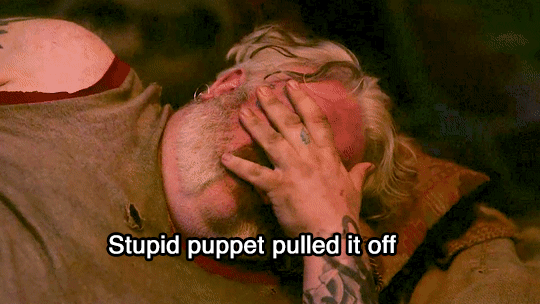
I need more Stede storytime ❤️
#the bow shoes are everything#ofmd#our flag means death#stede bonnet#my edits#ofmd gifs#wee john#S01E01#Pilot#ofmd s1#stede#stupid puppet pulled it off#ofmdann edits
300 notes
·
View notes
Text
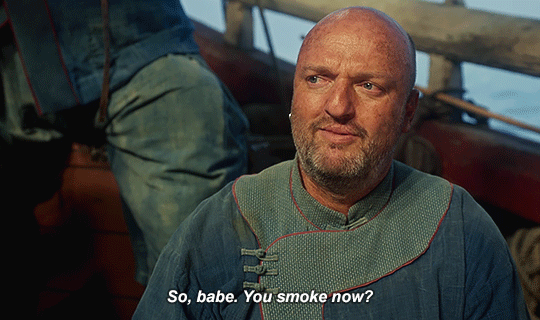



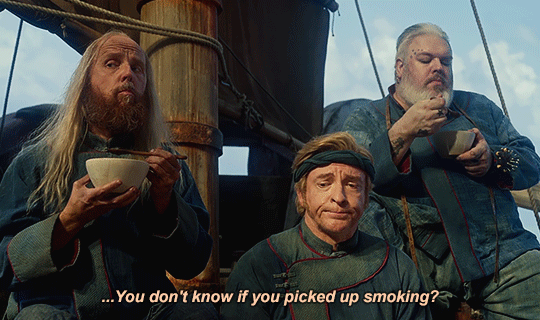
#ofmd#ofmd s2 spoilers#stede bonnet#wee john feeney#buttons#lucius spriggs#black pete#lupete#sorry button's little head tilt of confusion is THEE funniest thing in the world to me#hi my name is lucius dark'ness dementia raven way#**#smoking cw ////
316 notes
·
View notes
Text




37 days till more Wilmon moments to make us scream.. ❤️❤️
#young royals#wilmon#simon eriksson#wilhelm#wilmon countdown#look at these two.. after those kisses that moved heaven and earth woo wee. those kisses were insaaane! 💜#my gifs yr#2/3/24#youngroyalsedit
155 notes
·
View notes
Text
There's an exchange in the bedroom scene in "Man on Fire" that I think gets a little lost and is actually very important:
"You saved my life."
"Well, I'm glad I could help. I'm sure you'll return the favor next time we're in a near-death situation."
"How about we just avoid all near-death situations?"
"Yeah, nice idea. Not bloody likely in our line of work.

The exchange gets kind of lost in the mermaid discussion and Izzy busting in, which happens before Ed can say anything more, but it's not an incidental moment. Ed’s greatest fear is always losing Stede - either because Stede is whim prone and wants to be a big famous pirate, or because piracy is dangerous and they are constantly in near-death situations. The moment comes at a time when Ed has discarded his leathers; he no longer wants to be Blackbeard, and it's increasingly clear he doesn't want to be a pirate. But the fear is still there.
Stede has nearly died multiple times since Ed met him. They meet when he’s been stabbed and is bleeding out. Izzy runs him through. Ed himself almost goes through with killing him. The English try to execute him. Every time Ed has been more or less powerless to stop it.
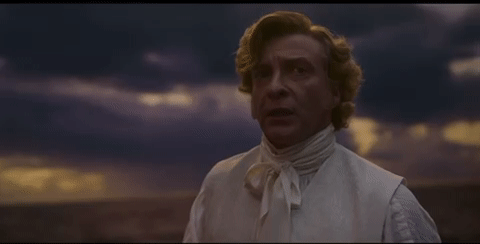
Blackbeard has nearly been the cause of Stede's death. The persona is what Izzy kept appealing to when he tried to get Ed to kill Stede. The night before, Ned Low almost killed them as a result of choices Ed made as Blackbeard. Ed can’t stop Stede from being hurt, even when he tries to keep the attention focused on him. It’s Stede who winds up being able to act, using the awesome power of empathetic listening and worker unionization. Ed can’t protect him and can’t save him, and Blackbeard put him in danger.
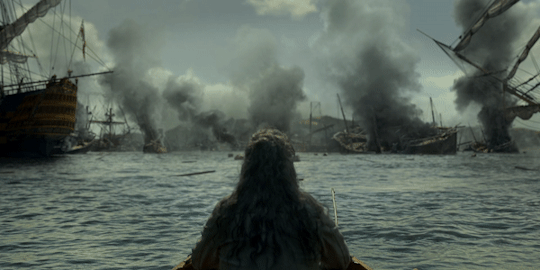
This feeds into Ed’s other fears. He spiraled when he lost Stede once, and every time he sees Stede hurt, he starts to panic. He’s been reminded, as they’re lying in bed in the safest place they could be, that their jobs mean that they’ll be in danger - that Stede will be in danger, either because of simply being a pirate, or because of Ed himself. Ed is scared of who he becomes when he has to put on Blackbeard, and he doesn't want to do it anymore. He's also now had it confirmed that Blackbeard is what puts Stede in danger in the first place.
It seems safer for him to run. If he runs, he never has to see Stede hurt, he never has to be Blackbeard, he never has to be worried about his own heart breaking, he never has to be left alone because he's the one that ran first.
But of course he does, because he goes back to the Republic of Pirates and sees the destruction and the first thing he thinks is that Stede is hurt. He hears Stede screaming for help, and he’s not there.

What Ed has forgotten is that Blackbeard has also saved Stede's life. The one time he was able to save Stede from death was by being Blackbeard—the English listen to his call for an Act of Grace because of the persona; they want the accolades for turning Blackbeard from piracy. The persona itself is what saves Stede.
In the end, Ed finds something worth killing for. He puts on Blackbeard again—he kills, willingly, for perhaps the first time since his father, in order to find and protect the man he loves. Much like Stede searching the Caribbean for Ed, there's no guarantee that he'll find what he hopes for, but he'll still hope. He's no longer watching the world burn; he's going to save Stede, or die trying.

#ofmd#our flag means death#edward teach#stede bonnet#blackbonnet#gentlebeard#ofmd meta#taika waititi#rhys darby#ofmd season 2#tw: violence#my wee thoughts#always happy to hear others!
554 notes
·
View notes